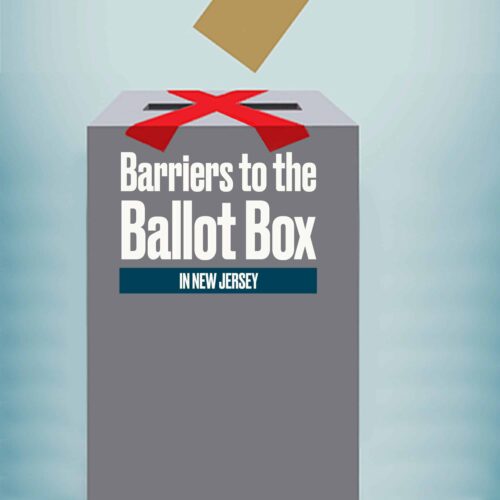Introduction
Some states that took extra steps this year to ensure safe voting during the COVID-19 pandemic mailed out absentee ballot applications to all registered voters. New Jersey was among those that went further, mailing every registered voter an actual ballot as is done under full-fledged vote-by-mail systems.
The state has also made historic strides this year in reforming felony disenfranchisement policies that disproportionately affect people of color.
Sign up for The Moment newsletter
Our CEO Susan Smith Richardson guides you through conversations and context on race and inequality.
Here’s an update on key voting rights and access issues in the state:
Vote by mail
President Donald Trump’s reelection campaign sued after New Jersey Gov. Phil Murphy, a Democrat, signed an Aug. 14 executive order calling for ballots to be mailed to registered voters this fall. The campaign argued that he was usurping the legislature’s authority. But then the legislature passed a bill supporting Murphy’s decision.
The state also allows local officials to start processing mail-in ballots up to 10 days before the election and to accept ballots without a postmark for up until 48 hours following Election Day. The Trump campaign sought to block these rules. A federal judge rejected that suit.
Legislators voted to keep at least half the state’s polling places open for people who prefer to vote in person or need to cast a provisional ballot. They also expanded the deployment of secure drop boxes across the state to receive ballots, amid concerns about a national slowdown in U.S. Postal Service delivery.
Unlike some states, New Jersey has also set up a formal “curing” process that requires voters to be notified if their mail-in ballot is in danger of being rejected due to a missing signature or other problem.
Felony disenfranchisement
Last year, New Jersey restored voting rights to more than 80,000 people after the legislature voted to eliminate the state’s disenfranchisement of people who are on probation or parole for felony convictions. Lawmakers balked at going a step further and joining Maine, Vermont and Washington, D.C., as the only jurisdictions in the country that allow people convicted of felonies to vote while incarcerated.
New Jersey has 12 times the rate of Black people in prison than white people, one of the highest disparities in the country.
But reaching people so they know they have voting rights is another matter, and the newly enfranchised also must navigate the state’s vote-by-mail system this year with a greater likelihood of not having a permanent address at which to receive a ballot.
Earlier this year, New Jersey passed a law ending “prison gerrymandering,” a move long sought by voting rights advocates.
Under the old system, the state counted imprisoned people in the legislative districts where the prison was located, increasing that (more often suburban or rural) district’s political influence even though prisoners were not allowed to vote. Instead, they’ll be counted based on their last address (more often urban).
Read more in Money and Democracy
US Polling Places
South Carolina’s history of disenfranchisement looms over tight U.S. Senate race
A surge in absentee ballots prompts court battles over witness and signature requirements.
US Polling Places
Arkansas rejects absentee ballots at a high rate, but won’t inform voters
The state’s felony disenfranchisement and voter ID laws disproportionately impact people of color.


Join the conversation
Show Comments